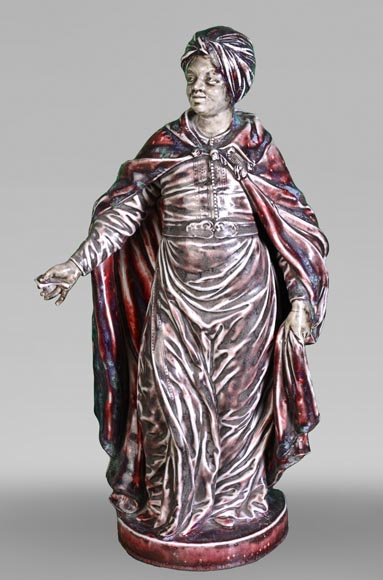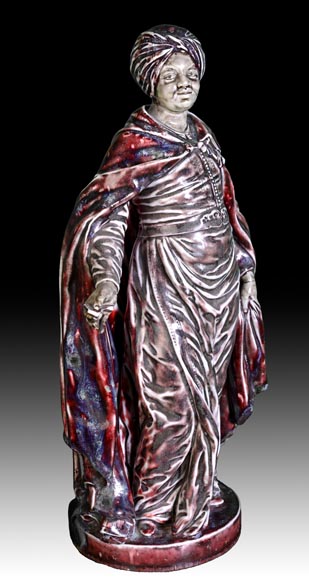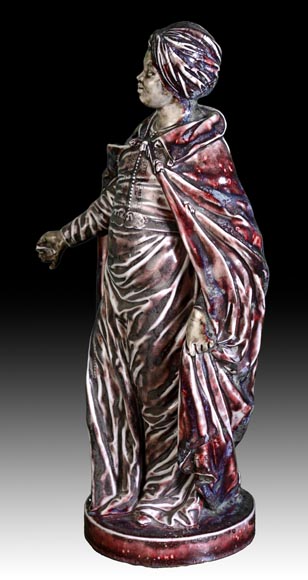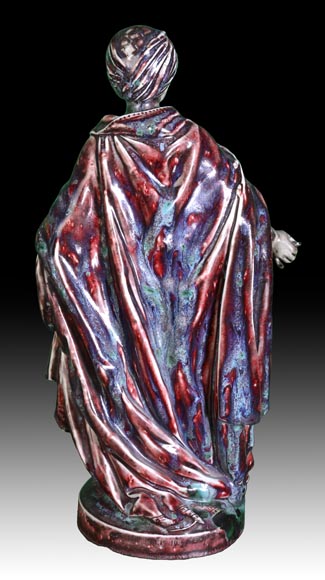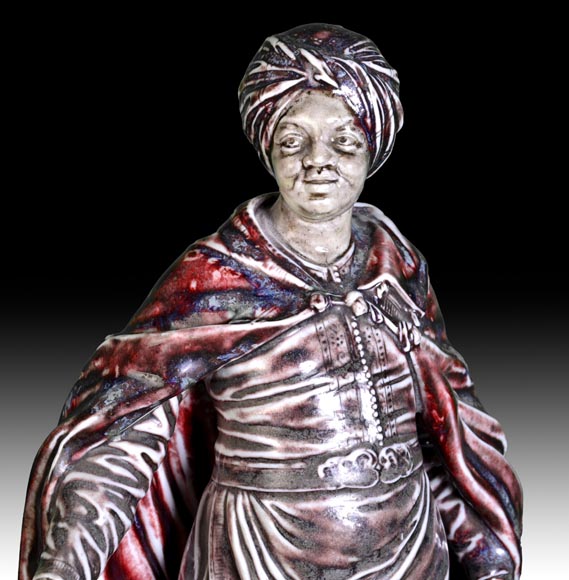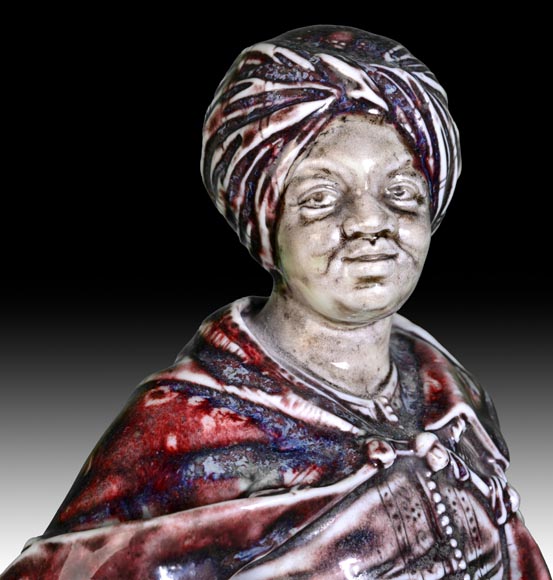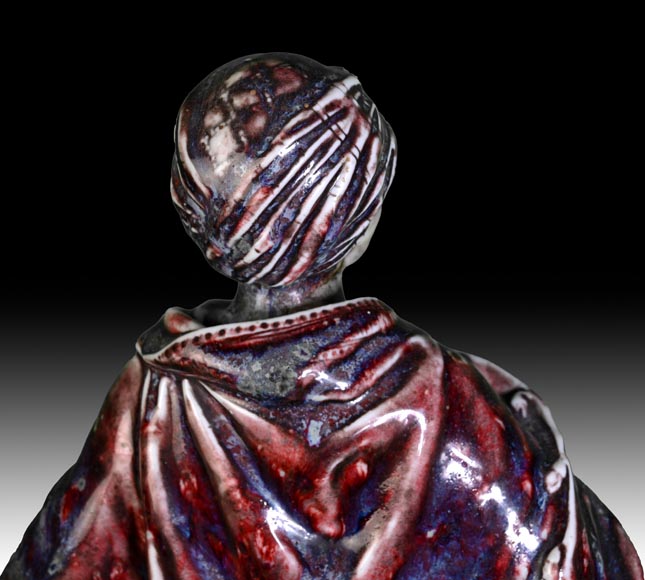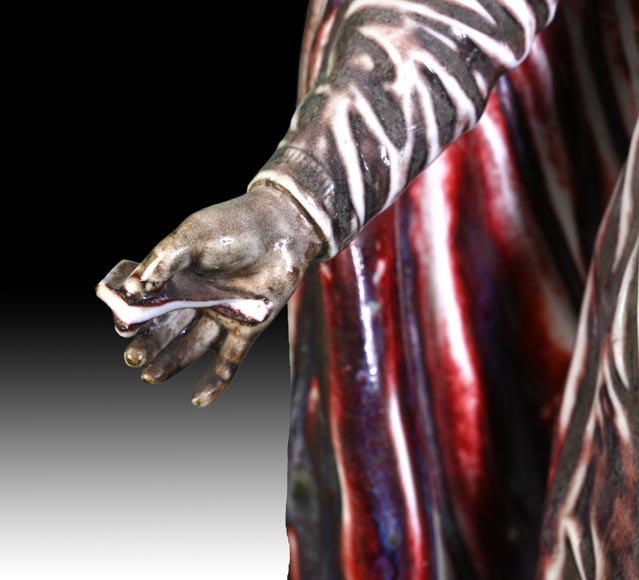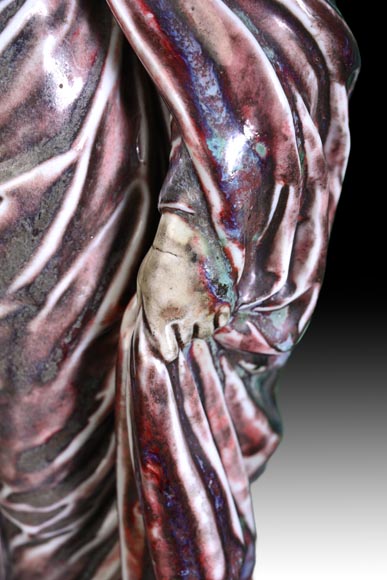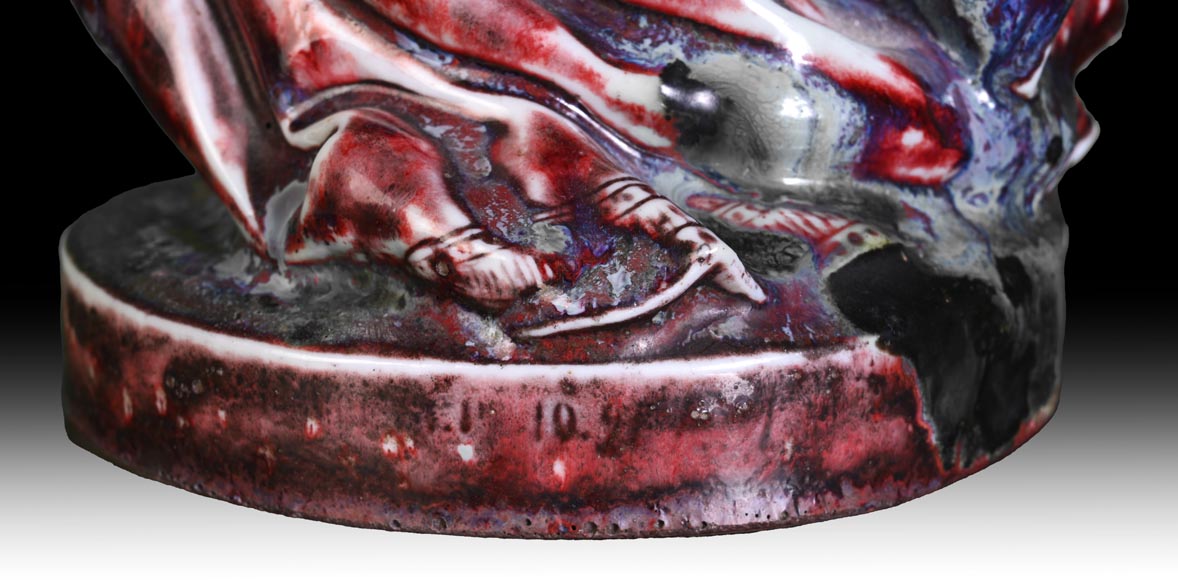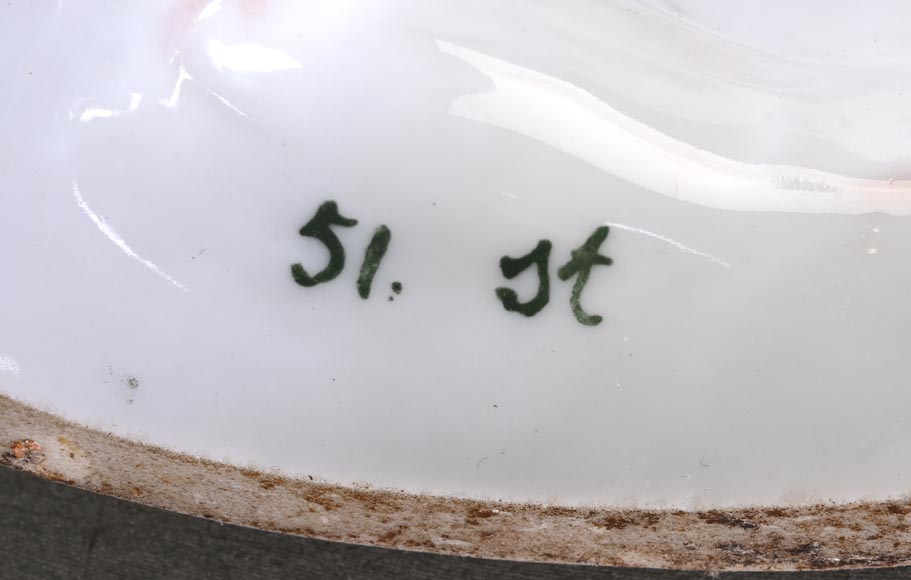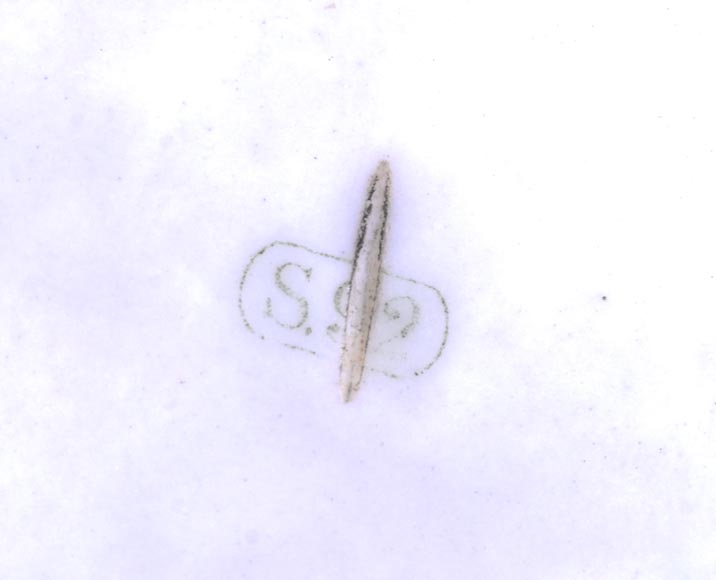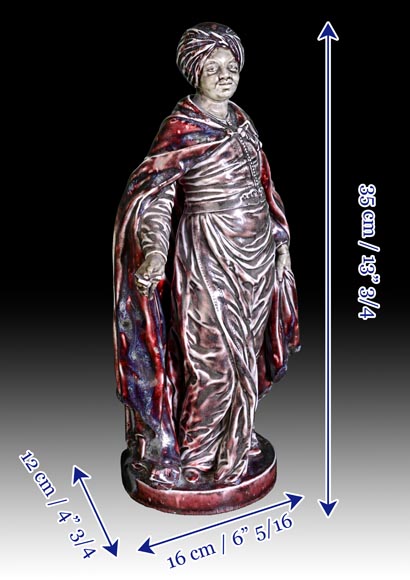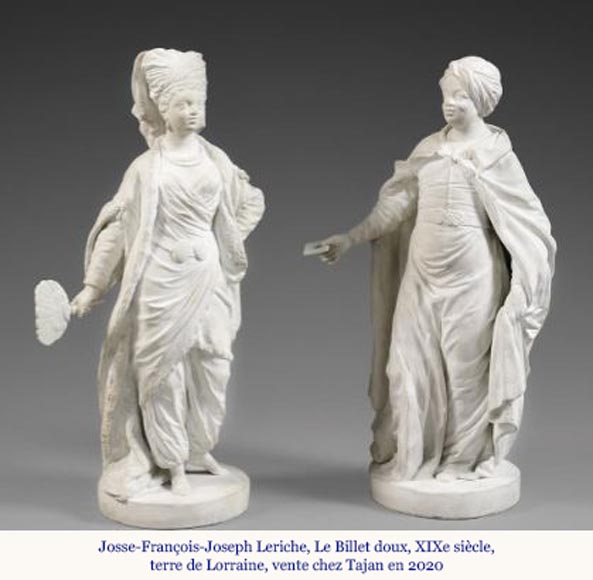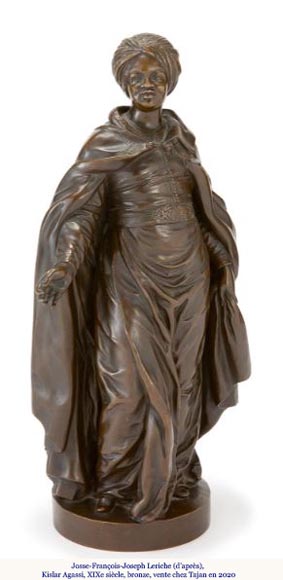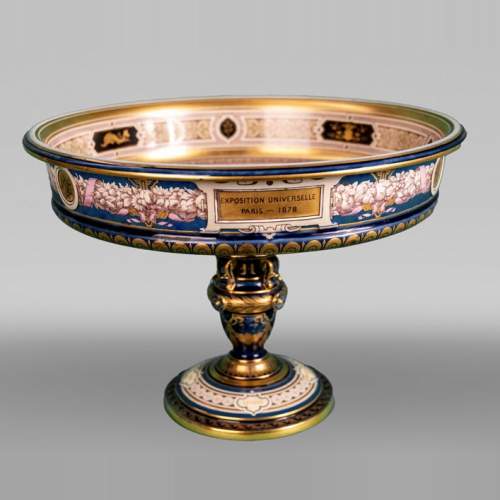Style Orientalism / Ref.14809
SÈVRES Manufacture, Josse-François-Joseph LERICHE (after), Le Billet doux, 1892
Dimensions
Width 6'' ¼ 16cm
Height 13'' ¾ 35cm
Depth: 4'' ¾ 12cm
Origin:
French
This enameled porcelain statuette was executed at the Sèvres manufactory in 1892, based on a model by Josse-François-Joseph Leriche.
Josse-François-Joseph Leriche (1738-1812) worked at the Sèvres manufactory between 1757 and 1801. He directed the sculpture workshop from 1780.
He created the group called Le Billet doux, which was produced at the Sèvres manufactory in biscuit from 1751/1752. In this pair of statues, the man extends a note to the woman beside him, who is richly dressed in an imaginative orientalizing costume and holds a fan in her hand.
Our sculpture corresponds to the figure of the man from this pair. The man, with black skin, is dressed in a brown tunic, the many folds of which are left in reserve. He is enveloped in a large mantle of a dark red shaded with blue and green. His turban presents the same shades. The fringe of the mantle and the details of the tunic demonstrate the sculptor and designer’s great attention to detail.
The man was also reissued independently of his companion from 1881. This sculpture, titled “Kislar Agassi” (the chief of the eunuchs guarding the Ottoman sultans’ seraglio), depicts a character identical in every way to the original man, except that he does not hold a billet doux in his hand. A bronze edition of this version was sold at Tajan in 2020.
From the first half of the 18th century, Europeans were fascinated by foreign cultures and were inspired by them in art, often in a fanciful manner. This interest in oriental, Far Eastern, or, as here, African cultures persisted throughout the 19th century. This enduring interest explains the longevity of Leriche’s model, which continued to be reissued from 1751 to at least 1892, the date of our sculpture.
Under the base, the mark of the Sèvres manufactory indicates that the sculpture dates from 1892; it is crossed out, indicating that this piece was set aside due to a minor defect in its execution. The sculpture bears a second inscription: 51 st. Furthermore, part of the billet doux that the man was holding is now missing.
Informations
Price: on request
Recommended for you :
Dimensions:
Height: 26
Diameter: 36
Dimensions:
Height: 55
Diameter: 22
Dimensions:
Height: 33
Diameter: 36
Dimensions:
Width: 30
Height: 57
Depth: 23
Dimensions:
Height: 55
Diameter: 24
Dimensions:
Height: 48
Diameter: 42
Dimensions:
Height: 58
Diameter: 40
Dimensions:
Width: 34
Height: 12
Depth: 34
Dimensions:
Height: 9
Diameter: 32
Dimensions:
Width: 18
Height: 16
Depth: 18
Dimensions:
Height: 4
Diameter: 30
Dimensions:
Height: 4
Diameter: 30



